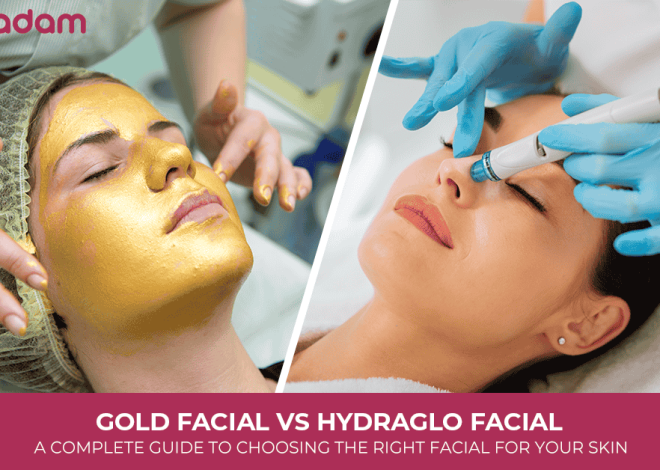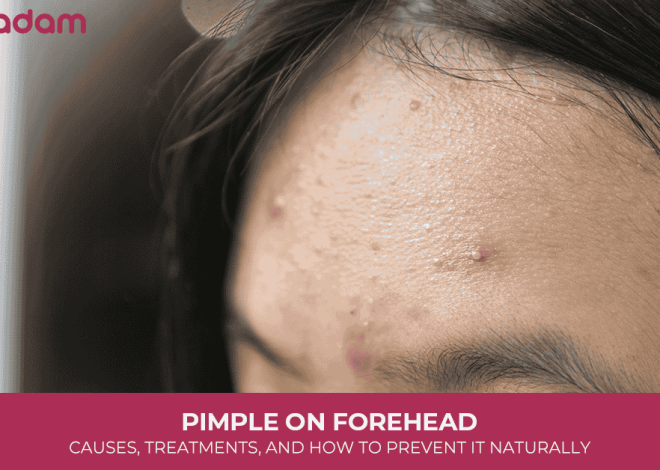
Is Glycerine Good for Oily Skin? The Truth You Should Know
When it comes to skincare, few ingredients have stood the test of time like glycerine. Known for its hydrating and healing properties, this clear, odorless liquid has been a staple in both commercial and DIY skincare for generations. But many people with oily or acne-prone skin still hesitate when it comes to incorporating glycerine into their routines.
So, is glycerine good for oily skin? Surprisingly, yes, when used correctly. Despite its hydrating nature, glycerine is non-comedogenic and helps balance the skin without clogging pores. In this comprehensive blog, we’ll explore the benefits, myths, and methods of using glycerine for both oily and dry skin types, and answer common questions to help you integrate it effectively into your regimen.
Table of Contents
What is Glycerine and Why is it So Popular?
Glycerine (also spelled glycerin) is a humectant, a substance that attracts water from the air and the deeper layers of your skin into the outer layer. Naturally found in plant oils and animal fats, glycerine is often used in skincare to hydrate, soften, and protect the skin.
Its popularity lies in its versatility. Whether you’re dealing with extreme dryness or excess oil, glycerine has something to offer.
Is Glycerine Good for Oily Skin?

This is a common concern, especially for those who associate hydration with greasiness. Let’s break this down.
- Non-comedogenic: Glycerine doesn’t clog pores. This is a major advantage for oily and acne-prone skin.
- Oil Control: Ironically, the more you strip your oily skin of moisture, the more sebum it produces to compensate. Glycerine provides lightweight hydration, helping reduce that oil-rebound effect.
- Soothing Effect: Oily skin can often become irritated due to over-washing or harsh exfoliation. Glycerine soothes and calms the skin barrier.
- Balances Sebum: Over time, using glycerine can help regulate your skin’s oil production by keeping it adequately moisturized.
So yes, glycerine for oily skin is not only safe, it can be transformative when used correctly.
Benefits of Glycerine for Oily Skin

Glycerine is more than just a moisturizer; it’s a skincare all-rounder. Here’s why it’s suitable for oily skin:
1. Hydrates Without Feeling Greasy
Oily skin still needs moisture, but heavy creams can make it worse. Glycerine pulls water into your skin, giving deep hydration without the sticky or oily feel.
2. Smooths and Softens Skin
Regular use can make your skin feel smoother and look healthier. It also helps keep your skin firm and bouncy by supporting its natural elasticity.
3. Helps Prevent Breakouts
Because it’s lightweight and doesn’t clog pores, glycerine keeps your skin moisturized without causing acne. Balanced moisture can also reduce extra oil production, which is often a cause of pimples.
4. Makes Other Products Work Better
Glycerine helps your skin absorb other skincare ingredients, like niacinamide or salicylic acid so they can work more effectively.
How to Use Glycerine on Oily Skin

To get the most out of glycerine, follow these steps:
1. Dilute Before Applying
Never apply concentrated glycerine directly to the skin—it can draw too much moisture and cause dryness or irritation. Instead, mix it with water or rosewater in a 1:1 ratio.
2. Use It in a Toner
Create a DIY toner by mixing:
- 1 tablespoon of glycerine
- 100 ml rosewater or witch hazel
Apply with a cotton pad after cleansing.
3. Add to Moisturizer
Mix a few drops into your oil-free moisturizer. This enhances hydration without making your face oily.
4. Glycerine Face Mask for Oily Skin
- 1 teaspoon of glycerine
- 1 teaspoon of multani mitti (Fuller’s earth)
- Rosewater to form a paste
Apply for 15-20 minutes and rinse.
Glycerine for Dry Skin: A Moisture Miracle
While glycerine works well for oily skin, it’s even more well-known for its effects on dry skin. In fact, glycerine for dry skin is often a go-to remedy in winter skincare routines.
Key Benefits for Dry Skin:
- Restores skin hydration
- Prevents flakiness
- Heals cracks and rough patches
- Forms a protective layer on the skin
Whether your skin is flaky from cold weather or chronically dry, glycerine can deliver long-lasting relief.
How to Use Glycerin for Dry Skin
The key to effectiveness lies in the application:
1. Mix with Oils
Combine glycerine with a few drops of coconut or almond oil. Massage into skin after a shower for lasting hydration.
2. Night Treatment
Mix glycerine and rosewater, apply to your face before bed, and wake up with soft, hydrated skin.
3. Glycerine in Body Lotion
Add a few drops of glycerine to your favorite body lotion to enhance its moisturizing power.
Pro tip: Always mix it with another hydrating agent to prevent any sticky residue or irritation.
Side Effects or Precautions
Glycerine is generally safe for most skin types, but a few precautions help avoid side effects:
- Always dilute glycerine before using.
- Conduct a patch test before applying to your face.
- Avoid using it in humid weather without sealing it with a moisturizer.
Glycerine: Best Practices for All Skin Types
Whether you’re wondering is glycerin good for dry skin or oily skin, here are universal tips:
| Best Practice | Why It Works | Tips for Best Results |
| Use at night | Skin repairs and absorbs nutrients better during rest | Apply on clean skin before bedtime to lock in moisture overnight |
| Combine with hydrosols | Adds extra hydration and nutrients | Try rosewater for calming, aloe vera juice for soothing, or green tea for antioxidant boost |
| Avoid alcohol-based products | Alcohol can dry out the skin and reduce glycerine’s benefits | Check labels for high alcohol content and opt for gentle, non-drying formulas |
DIY Glycerine Recipes for All Skin Types

1. Hydrating Face Mist
- 1/2 cup rosewater
- 1 tablespoon glycerine
- Few drops of lavender oil
Spray on a clean face anytime your skin feels tight.
2. Glycerine & Aloe Vera Gel
- 1 tablespoon glycerine
- 1 tablespoon aloe vera gel
Apply daily as a lightweight moisturizer for oily skin.
3. Lip Softener
Mix glycerine and honey and apply overnight for soft lips.
Final Thoughts
So, is glycerine good for oily skin? The answer is a confident yes. When used wisely—diluted, combined with the right ingredients, and applied at the right time, glycerine can become an invaluable part of your skincare arsenal. Its ability to hydrate without clogging pores makes it ideal not just for oily skin, but also for those with combination or acne-prone skin.
And for those battling flakiness and tightness, glycerin for dry skin offers a powerful, natural solution. Whether you’re crafting DIY recipes or enhancing store-bought products, glycerine proves to be a timeless and versatile skin savior.
If you’re looking for a safe, effective, and budget-friendly way to boost hydration, don’t overlook this humble skincare hero. Just remember: moderation and dilution are key. Let your skin enjoy the benefits, one drop at a time.
FAQs
1. Is glycerine good for oily skin every day?
Yes, but in diluted form. Daily use helps balance hydration and oil production.
2. Can glycerine cause breakouts?
Not directly. Glycerine is non-comedogenic, but improper use (like using it undiluted) may irritate sensitive skin.
3. How long should I leave glycerine on my face?
You can leave it overnight when mixed properly. For masks, 15–20 minutes is ideal.
4. Is glycerine better than hyaluronic acid for oily skin?
They serve similar purposes but glycerine is more affordable and accessible. Hyaluronic acid may be lighter, but glycerine is still highly effective.
5. Can I use glycerine under makeup?
Yes. When diluted, it acts as a great primer and prevents makeup from flaking.
6. Can I use glycerin for dry skin during winter?
Absolutely. It locks in moisture, making it a top choice for winter dryness.
7. Does glycerine lighten skin tone?
Not directly, but it improves texture and clarity, which may result in a more even-looking complexion.
8. Can I mix glycerine with sunscreen?
Yes, but ensure the sunscreen is non-comedogenic and your glycerine is diluted to avoid pilling.
9. Is it okay to use glycerine on acne-prone skin?
Yes. Glycerine has antibacterial properties and helps heal post-acne marks.
10. How do I store glycerine?
Keep it in a cool, dry place away from direct sunlight. Tightly close the cap to prevent contamination.



